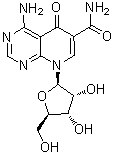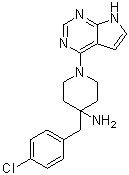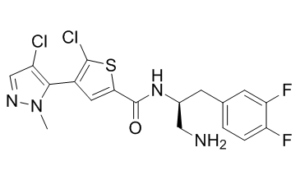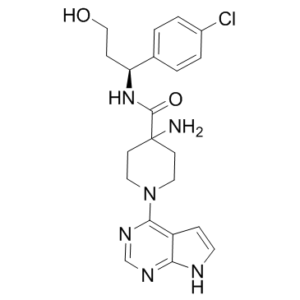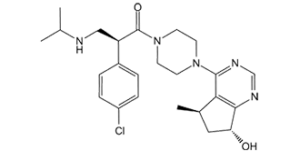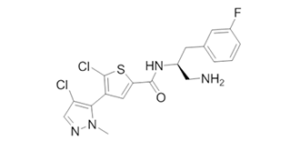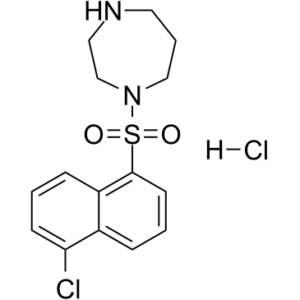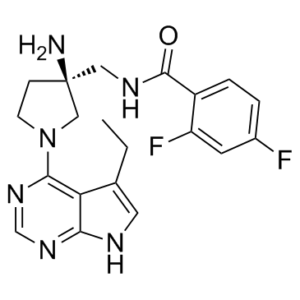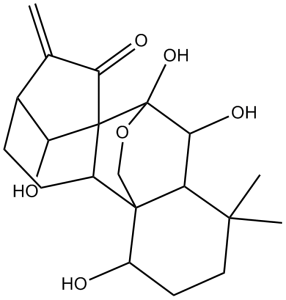API-1 (API1) is a novel and potent Akt inhibitor, inducing GSK3-dependent, β-TrCP- and FBXW7-mediated Mcl-1 degradation, resulting in induction of apoptosis.
CCT128930 is a novel, potent, ATP-competitive and selective pyrrolopyrimidine-based inhibitor of Akt2 (IC50 = 6 nM in a cell-free assay) with potential anticancer activity.
Esculetin is a naturally occuring β-catenin inhibitor found mainly in chicory and other plant sources with antioxidant, antiinflammatory, and antitumor activities.
GSK2110183, an analog of Afuresertib, is a potent, orally bioavailable and ATP-competitive Akt inhibitor with Ki of 0.08 nM, 2 nM, and 2.6 nM for Akt1, Akt2, and Akt3, respectively.
Capivasertib (formerly known as AZD5363), a novel pyrrolopyrimidine-derived compound, is a potent, orally bioavailable pan-AKT kinase inhibitor with potential anticancer activity.
Ipatasertib (formerly also called GDC-0068; RG-7440) is a novel, potent, orally bioavailable, ATP-competitive and highly selective pan-Akt inhibitor targeting Akt1/2/3 with potential anticancer activity.
Afuresertib (also named as GSK2110183C) is a potent, orally bioavailable and ATP-competitive Akt inhibitor with potential anticancer activity.
ML-9 HCl is a novel, potent and selective myosin light chain kinase (MLCK) inhibitor, also Akt kinase and and stromal interaction molecule 1 (STIM1).
PF-AKT400 (AKT-0286; ZINC-111606147), designed based on a 3-aminopyrrolidine scaffold, is a novel, selective, potent, ATP-competitive Akt kinase inhibitor with antitumor activity.
Oridonin (NSC-250682; Isodonol) is a novel, naturally occurring and cell-permeable diterpenoid extracted from Rabdosia rubescens with anticancer activity.
